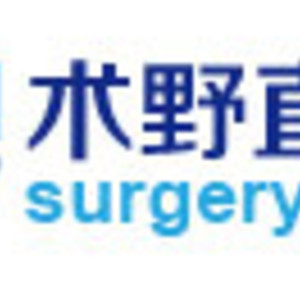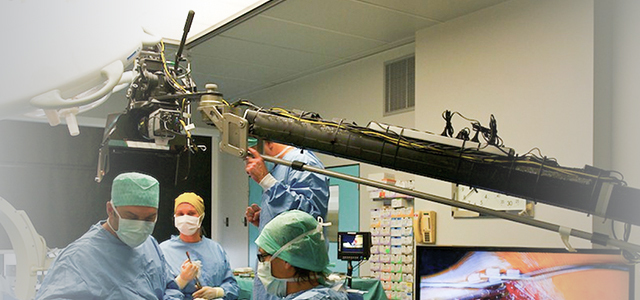Tumor "chokes" the throat of the elderly, and doctors use gastroscopy to build a "life passage"
As the saying goes, "Man is iron, and rice is steel. If you don’t eat a meal, you’ll get hungry." Eating and drinking water are common things for normal people, but for 98 year old Chen (pseudonym) who suffers from esophageal cancer, eating and drinking water have become extravagant desires.
Fortunately, with the help of multiple disciplines such as the Department of Gastroenterology, Endoscopy Center, and Anesthesiology at Hengdian Wenrong Hospital, the elderly’s "life channel" has been reopened, and their quality of life has significantly improved in their later years.
01 is choked by a tumor in the throat
What does it feel like to have trouble swallowing food? In the past six months, Chen has experienced that every time he eats, he feels like he’s choked and can’t swallow it. He can only eat some liquid food and feels extremely uncomfortable. As the days passed, the symptoms of the elderly became increasingly severe, and in the end, they couldn’t even swallow liquid food, and even felt nauseous when eating. In just one month, the whole person seemed to have lost more than 10 pounds and their mental state was not as good as before.
Watching the elderly man gradually lose weight, the family was worried and took him to Hengdian Wenrong Hospital for examination. He was diagnosed with esophageal cancer. It turned out that the tumor had tightly blocked the esophagus.
02 "Open up" the elderly’s "life channel"
In order to quickly improve the patient’s eating condition, significantly improve their quality of life, and prolong their survival, the hospital’s gastroenterology department, endoscopy center, general surgery and other multidisciplinary joint consultations have decided to implement endoscopic esophageal stent placement surgery for the elderly.
During the surgery, experts used gastroscopy to determine the location of the narrow segment, and under the guidance of a guide wire, the stent was accurately released, allowing the originally narrow esophagus to reopen and successfully opening the "life passage" for the elderly. The surgery was very smooth.
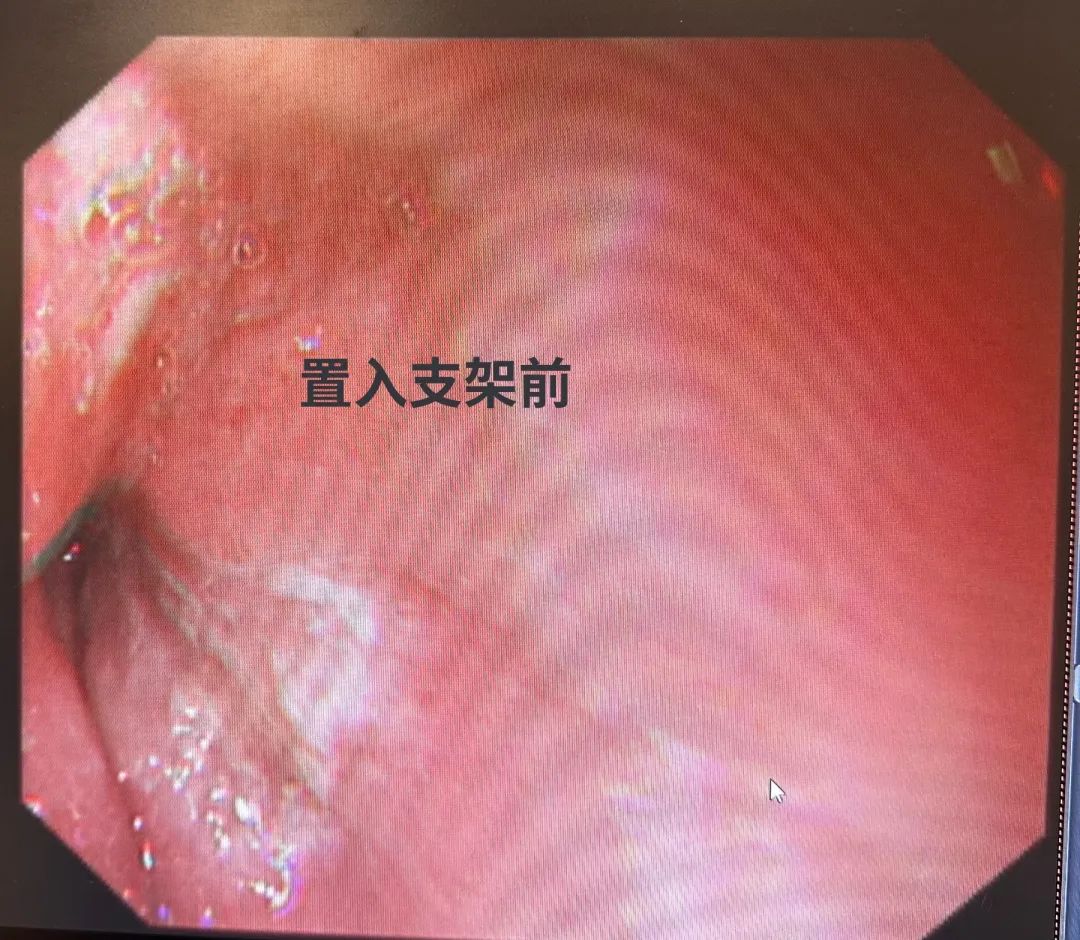
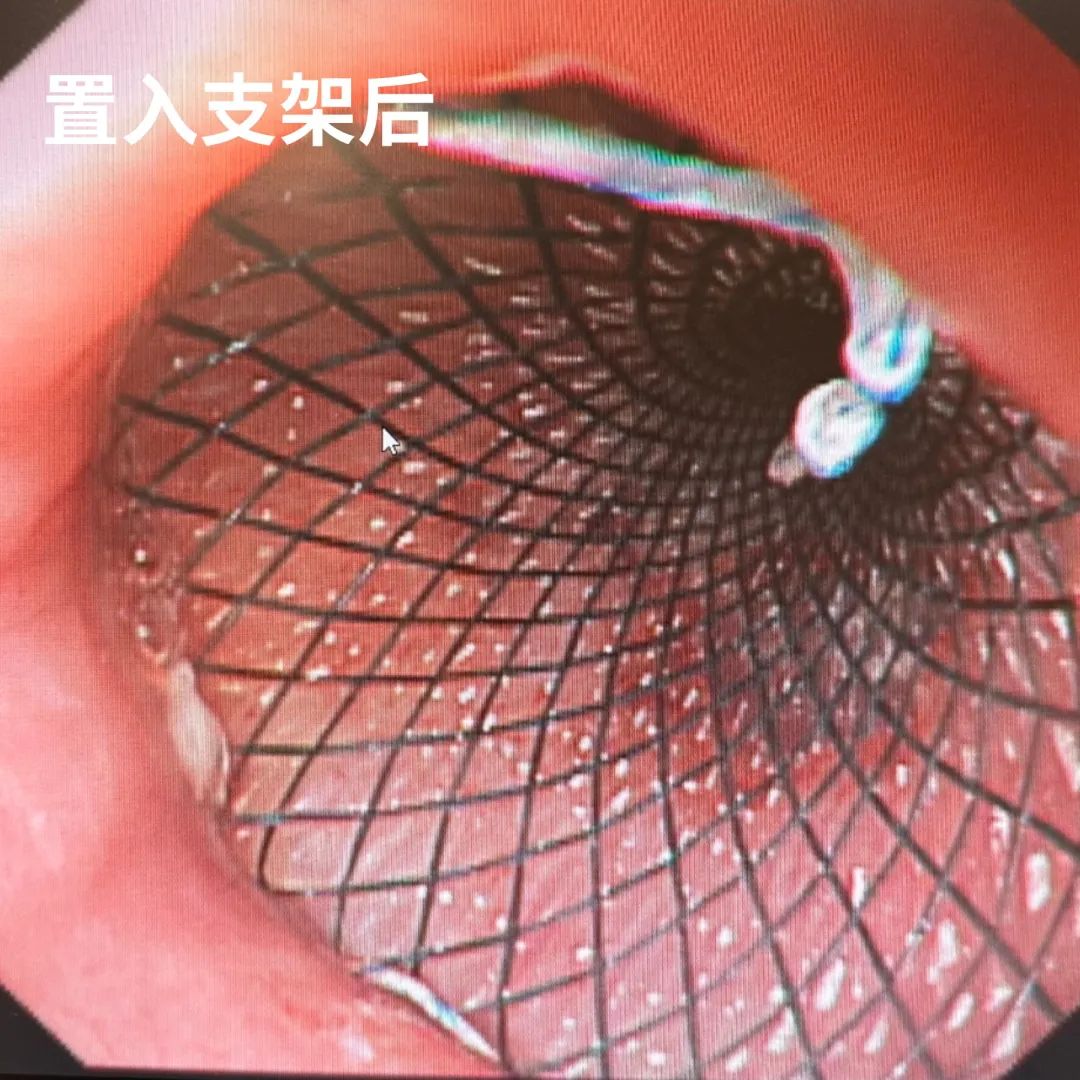
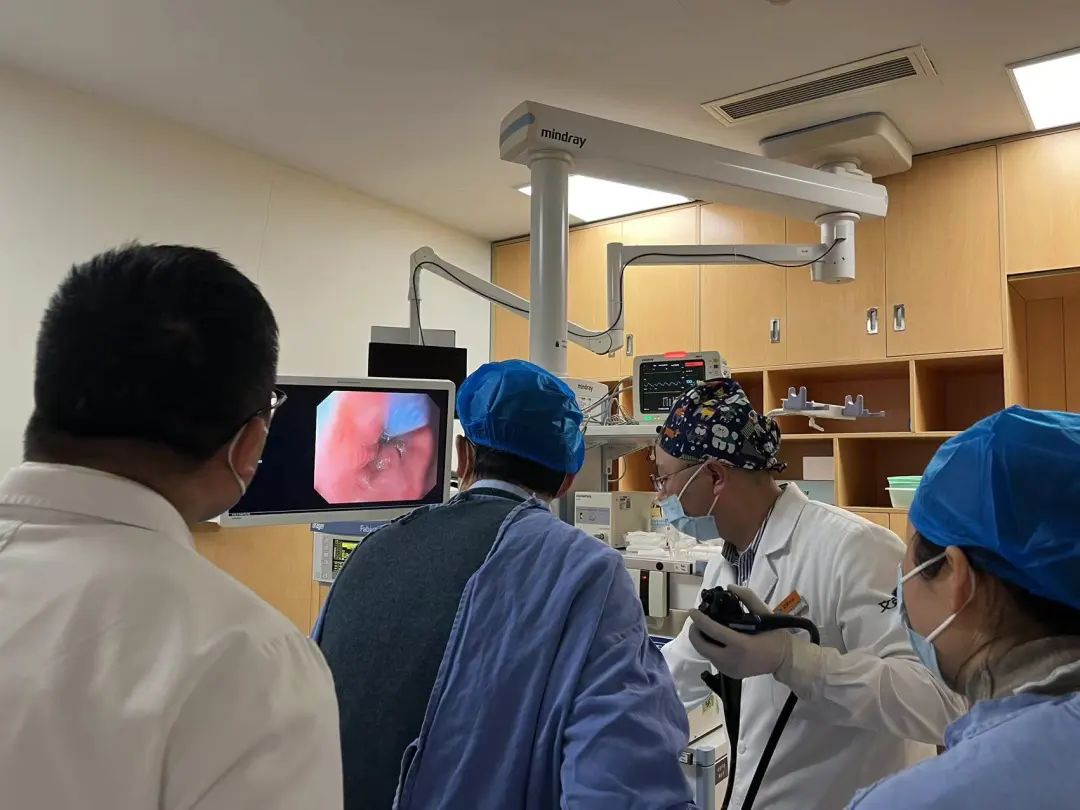
It is reported that esophageal cancer is a common digestive tract tumor, and its typical symptom is progressive dysphagia. First, it is difficult to swallow dry food, then it is semi liquid food, and finally, water and saliva cannot be swallowed. Esophageal cancer is often overlooked due to its unclear early clinical symptoms, and it is not until serious symptoms appear that patients seek medical attention, resulting in many patients losing the opportunity for surgery.
For patients with advanced esophageal cancer, endoscopic stent placement is one of the main palliative treatment methods, which can significantly prolong their survival time, alleviate their eating difficulties, and improve their quality of life.
In recent years, the incidence rate of digestive tract tumors is on the rise in China, and asymptomatic is one of its major characteristics. Once there are obvious clinical manifestations, the tumor is often in the middle and late stages, and has to accept surgical laparotomy, radiotherapy and chemotherapy and other treatments.
With the continuous development of endoscopic diagnosis and treatment technology, gastrointestinal endoscopy has become the simplest and most effective method for detecting early gastrointestinal cancer. If detected early, super minimally invasive surgery under digestive endoscopy can completely remove tumor lesions, improve prognosis, and enhance patient quality of life. Regarding this, doctors suggest that gastroscopy should be performed regularly after the age of 40, and colonoscopy should be performed regularly after the age of 45 for early detection, diagnosis, and treatment.
This article is reprinted from "Dingxiangyuan"
Surgerycast
Shanghai Headquarter
Address: Room 201, 2121 Hongmei South Road, Minhang District, Shanghai
Tel: 400-888-5088
Email: surgerycast@qtct.com.cn
Beijing Office
Address: room 709, No.8, Qihang international phase III, No.16, Chenguang East Road, Fangshan District, Beijing
Tel: 13331082638( Liu )
Guangzhou Office
Address: No. 15, Longrui street, longguicheng, Taihe Town, Baiyun District, Guangzhou
Tel: 13302302667 ( Ding )
